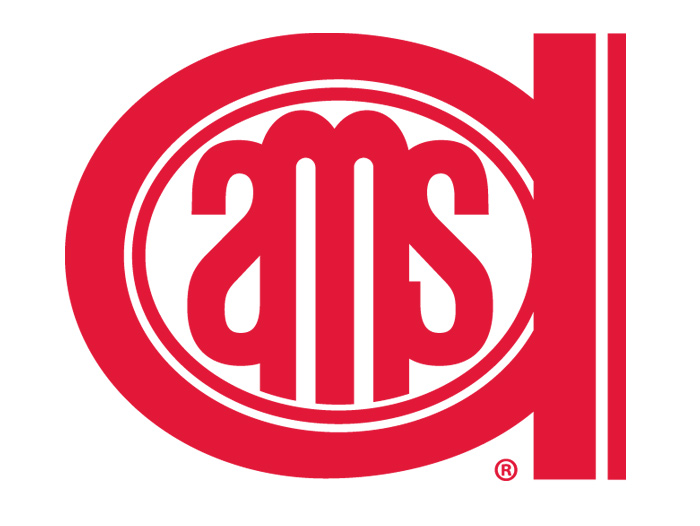AMSA Announces Symposium Speakers on ‘Global Livestock Production Sustainability’ AND Food Safety Risks and Interventions: Realities, Opportunities, and Goals
July 23, 2020 | 4 min to read

The American Meat Science Association (AMSA) is pleased to announce, Dr. Jude Capper and Dr. C. Alan Rotz will be the featured speakers in the concurrent symposium entitled “Global Livestock Production Sustainability” on Tuesday, August 4, 2020 during the 66th International Congress of Meat Science and Technology (ICoMST) and the AMSA 73rd Reciprocal Meat Conference (RMC) exclusively virtual meeting. This session will be sponsored by Zoetis.
The featured presentations include:
Livestock Sustainability – Do Size, System or Species Matter?: Sustainability has become a key concern for all food system stakeholders, yet we are often talking at cross purposes or about conflicting issues. As concerns increase regarding greenhouse gas emissions, water use, antimicrobial resistance, plant-based meat alternatives and the cost of food, how do we continue to be sustainable? Is there an ideal system, species or size of operation, or do we have to think beyond the fence lines of meat production? The barriers and opportunities to maintaining sustainability will be discussed by Dr. Jude Capper, Independent Livestock Sustainability Consultant, in this session, both at the national and global level.
Environmental Sustainability of Livestock Production: With a growing global demand for livestock products and increasing concern over their environmental impacts, methods are needed for assessing and improving the sustainability of production systems. Life cycle assessment is a tool that is widely used to quantify and compare the environmental sustainability of agricultural as well as other products and services. Life cycle assessments of livestock production have focused on greenhouse gas emissions, but livestock may not have the impact on global warming that is promoted. Livestock, particularly ruminants, and their manure produce a lot of methane, which is a powerful greenhouse gas, but this gas oxidizes in the atmosphere leaving no long-term impact. More important environmental concerns, particularly in developed countries, may be water use and ammonia emissions from pastures and housing facilities. The major environmental impact though of livestock products and most other foods is waste, primarily from the consumer. In this session Dr. C. Alan Rotz, Agricultural Engineer for the United States Department of Agriculture’s Agricultural Research Service, will discuss the many strategies being evaluated to reduce emissions and resource consumption in livestock production, including methods that are both highly effective and economical for implementation that are not readily available and more difficult to develop.
Food Safety Risks and Interventions: Realities, Opportunities, and Goals
The American Meat Science Association (AMSA) is pleased to announce, Dr. Bo Reagan and Dr. John Schmidt will be the featured speakers in the concurrent symposium entitled “Food Safety Risks and Interventions: Realities, Opportunities, and Goals” on Monday, August 3, 2020 during the 66th International Congress of Meat Science and Technology (ICoMST) and the AMSA 73rd Reciprocal Meat Conference (RMC) exclusively virtual meeting. This session will be sponsored by Corbion.
The featured presentations include:
Salmonella Task Force Report: Uniting Animal Protein Industries to Reduce the
Public Health Burden of Salmonellosis: The Center for Disease Control and Prevention (CDC) estimates that 1.4 million cases of salmonellosis occur in the United States each year. Of these cases, approximately 20% result in hospitalization while deaths range from 420 to 500 each year. Additionally, Salmonella contamination causes 28-31 percent of all foodborne illnesses resulting in death in the United States. Salmonella has been and continues to be a major pathogen impacting the safety of our food supply. The International Stockmen’s Educational Foundation (ISEF) has united the animal protein industries through the establishment of a Blue Ribbon Task Force to address Salmonella. In this presentation Dr. Bo Reagan, Meat Science and Food Safety Specialist at Zoetis, will provide insight into the Blue Ribbon Task Force’s efforts to manage Salmonella. Key areas within the animal protein production chain have been identified and working groups within these areas will be establishing recommended practices in an effort to reduce the public health burden caused by salmonellosis.
SMART Antimicrobial Resistance Goals to Drive Meat Safety Improvement: Concerns that food-animal production significantly contributes to antimicrobial-resistant human infections have persisted for more than 20 years. Most antimicrobial resistance concerns are generalized. By their nature, non-specific concerns are unfalsifiable and can never be scientifically alleviated or remediated. Therefore, meat safety improvement begins with defining SMART (Specific, Measurable, Attainable, Relevant, Time bound) antimicrobial resistance goals. In this presentation, Dr. John Schmidt, Research Microbiologist with the Meat Safety and Quality Research Unit at the USDA – Meat Animal Research Center, will discuss the SMART process for the highest priority antimicrobial resistance issues facing the meat industry to facilitate scientific goal attainment.
The 66th ICoMST and AMSA 73rd RMC will be held August 3-6, 2020 online in the virtual format. For more information please visit: www.icomst2020.com or contact Deidrea Mabry 1-800-517-AMSA ext. 12.
